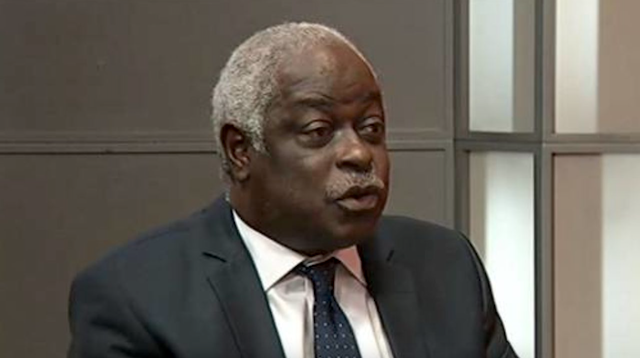“Right in the middle of his prayer, the Lord called him home”.
All men pray. Even atheists do. Put us in a particular space where we are confronted with our humanity, and we will cry out for help in prayer. We might not know who we are praying to, but we will ask for a deliverer.
However, there is only one deliverer: God.
The shipmaster woke Jonah up. He said to him: “How can you be sleeping at a time like this? Call upon your God.”
He did not know who Jonah’s God was. It made no difference to him if Jonah was an idol-worshipper. Just call upon your God. Maybe your God will be the Lord.
James says: “The effective, fervent prayer of a righteous man avails much.” (James 5:16).
Emergency God
Find an atheist who has just been diagnosed with a terminal disease and ask if you can pray for him. He is now more than likely to answer “yes.” When adversity comes, when we are at the end of our endurance, we seek a higher power. When we are at a dead end, we are forced to acknowledge there is someone greater than we are.
The psalmist says: “From the ends of the earth will I cry unto thee, when my heart is overwhelmed: lead me to the rock that is higher than I.” (Psalm 61:2).
Man, at his most fundamental, is a worshipper. There is a longing of the heart, and it is for God. There is a yearning at the depth of the soul for God. Whether we recognise it or not, this cry of the psalmist for God is the cry of all men: “My soul thirsts for You. My flesh longs for You, in a dry and weary land, where there is no water.” (Psalm 63:1).
It does not matter if we are kings or presidents or heavyweight boxing champions; in certain situations, we are confronted with the reality of our mortality. In certain difficulties, we are forced to recognise our inadequacy and helplessness. Man is so vulnerable; he can be killed by a mere mosquito. We all know this.
As a result, there is in us a silent cry for God. Nahum says: “The LORD is good, a stronghold in the day of trouble.” (Nahum 1:7). We know we cannot handle things by ourselves. We know we cannot defend ourselves. We know there are so many things beyond our ability and science. We know we need God.
Even if God did not exist, we would still need Him. That is the reason why some create their god. When we do not know Him, we fabricate god and say He is an idol. We say He is the sun or the moon or the stars. We even say He is a piece of wood:
“(Man) makes into a god, his carved image. He falls down before it and worships it, prays to it and says, ‘Deliver me, for you are my god!’” (Isaiah 44:17).
I have been in a plane that was in distress, and everyone was calling upon the name of the Lord. I heard people shout “Jesus” again and again. I did not hear them shout any other name: “For there is no other name under heaven given among men by which we must be saved.” (Acts 4:12).
When there is danger, we need a Saviour. When there is a problem, we are desperate for a helper. We seek refuge from the storms of life; shelter from the rain; shade from the sun. When there is an accident, we need a doctor. When there is famine, we need food. When we are cold, we need a blanket.
God is all these and more. He is our shelter; He is our doctor; His word is our food and our drink; He is our refuge and strength. The canopy over our head.
He is: “A strength to the poor, a strength to the needy in his distress, a refuge from the storm, a shade from the heat; for the blast of the terrible ones is as a storm against the wall.” (Isaiah 25:4).
Rattlesnakes
A man wanted nothing to do with God. He disliked Christians and churches. He made sure his sons, Tom, Dick, and Harry, would have nothing to do with believers.
But one day, surprisingly; a local minister was called to his house. A rattlesnake had bitten Tom. The doctor had done all he could but to no avail. So, the man; the atheist, called the minister as a last resort.
So, the minister prayed: “Father, I thank you for sending a rattlesnake to bite Tom; for this is the first time his father has ever acknowledged that he needs You. I pray for two more rattlesnakes to bite Dick and Harry as well, so they too may receive this blessing. And Lord, I pray for a very big rattlesnake to bite the old man himself, so that he too will know what it means to have You.”
For this cause, “Man, who is born of a woman, is of few days, and full of trouble.” (Job 14:1). God says: “Pray to me in time of trouble. I will rescue you, and you will honour me.” (Psalm 50:15).
Hunger for God
Prayer is a hunger for God. It is a yearning for fulfilment. It is the soul reaching for solace. It is a cry for safety; a desire for an embrace; a yearning for rest. Prayer is the Prodigal Son hankering to return home. It is drowning Peter crying out for help. It is man at the end of his rope, longing for the peace of death.
Prayer is natural to limited man. When a man ceases to breathe, he dies physically. When he stops praying, he dies spiritually. In this world, there are many dead men walking.
One thing is certain: there is strength in prayer because it provokes the intervention of the Almighty into our situations and circumstances. It is so powerful; it divided the seas (Exodus 14:21); moved mountains (Psalm 114:4); stilled raging storms (Mark 4:39); shut up the mouths of lions (Daniel 6:21); raised the dead back to life (Acts 9:40).
Prayer is one of the greatest privileges God has given to man. John says: “We are certain that God will hear our prayers when we ask for what pleases him. And if we know that God listens when we pray, we are sure that our prayers have already been answered.” (1 John 5:15).
It is time to pray; it always is. It is time to lay hold on God. It is time to prevail with the Almighty. Jesus says we must always pray and not give up. (Luke 18:1). We need to pray so we do not fall into temptation. We need to pray to stand in the gap for others. We need to pray to enter into God’s rest.
Emmanuel Igein’s old man knelt down to pray for his family, as he did dutifully every morning. In the middle of the prayer, he suddenly stopped. It took a while for his loved ones to realise what happened. Right in the middle of the prayer, the Lord called him home. He had gone to be with the Lord.

![[Devotional] IN HIS PRESENCE: Can God count on you?](https://thenewsguru.ng/wp-content/uploads/2021/12/Screenshot_20211202-092925.png)
